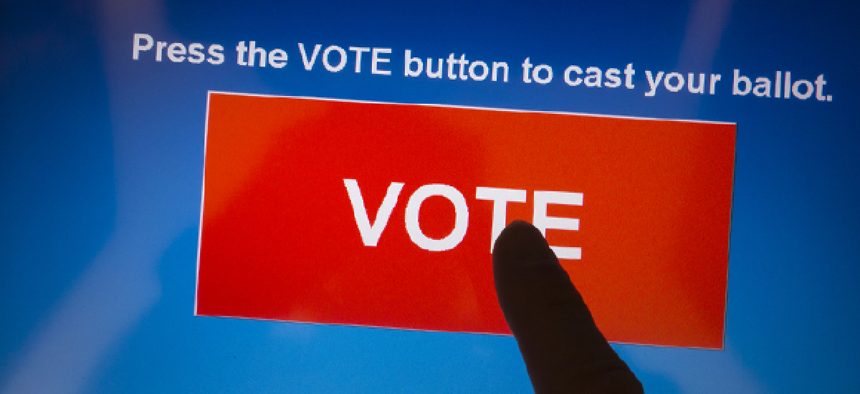Elections: Another unsecured enterprise application?


Connecting state and local government leaders
With IT systems underpinning elections infrastructure, state officials are taking different approaches to secure their systems against growing threats.
As hackers become more sophisticated, state and local election officials must ramp up their IT expertise to protect registration data and elections results.
“Elections offices have become IT offices that happen to run elections,” Jeremy Epstein, deputy division director of the National Science Foundation’s Division of Computer and Network Systems said at the Jan. 10 Election Assistance Summit. “We need to be focused on detection and recovery.”
When Rhode Island Secretary of State Nellie Gorbea was appointed in January 2015, she made election security a priority by growing her IT department by 40 percent to deal with increasing threats. She also worked with legislative leadership to get more funding to replace old election equipment.
“We realized that our voting systems were outdated with 20-year old scanning systems that were at the point of breaking down,” Gorbea said. “In time for the 2016 elections, we were able to purchase ballot scanning machines that increased our security levels.”
Officials in Washington state have taken a different approach to election security by becoming the second state to move exclusively to vote by mail. Ballots are mailed to voters at least 18 days before each election, and they can be returned via the postal service or a ballot drop box. Voters can find the closest local voting centers or check on the status of their ballots by logging into the state’s MyVote online portal.
Washington Secretary of State Kim Wyman said she was hesitant to follow the Department of Homeland Security’s lead after election systems were designated as national critical infrastructure.
The state works with the Elections Sector Coordinating Council (ESCC), which helps coordinate federal, state and local efforts to protect election infrastructure.
“I was hesitant to have a national organization become involved in our elections moving forward, but our experience with our local [DHS advisors] has been positive,” Wyman said. “We are working through this process gingerly because the last thing that we want is for the federal government to take over our elections.”
Rhode Island's Gorbea sees DHS as a “white hat advisor and mentor” to her staff, but she said it is hard to understand each other’s needs. It is going to “take a while” before she feels confident about the federal agency's work, she said.
Meanwhile, DHS is working on getting security clearances for senior state election officials so it can share information on threats more quickly, said Bob Kolasky, acting deputy under secretary for the National Protection and Programs Directorate at DHS.
Additionally, through the Multi-State Information Sharing and Analysis Center and the ESCC, DHS has begun work on a pilot to create an election information sharing analysis center that can provide more resources, including alerts, sensors and detection capabilities for state elections systems.
Kolasky’s team worked with local security advisors and cybersecurity experts to advise Virginia and New Jersey election officials ahead of the November 2017 elections.
“Unfortunately, in 2016, [we had] to build relationships at the same time that we were in a bit of a hurricane,” Kolasky said, referring to the Russian efforts to probe election systems and otherwise influence the U.S. elections. Those government-to-government relationships have solidified over the past year, he said, and DHS now is “in a much better position to work with interagency partners and the election community.”
Part of the problem for election officials is that attacks on election systems are difficult to detect immediately, NSF's Epstein said. Election officials in 21 states were not told by DHS about Russians attempting to hack into their systems until 10 months after the 2016 elections.
States that have requested free security screening services from DHS will get their systems tested for vulnerabilities before the 2018 midterm elections, according to Kolasky. DHS has completed security assessments for three states and expects to meet the 11 remaining requests by the middle of April.
NEXT STORY: How threat hunting enhances cybersecurity




